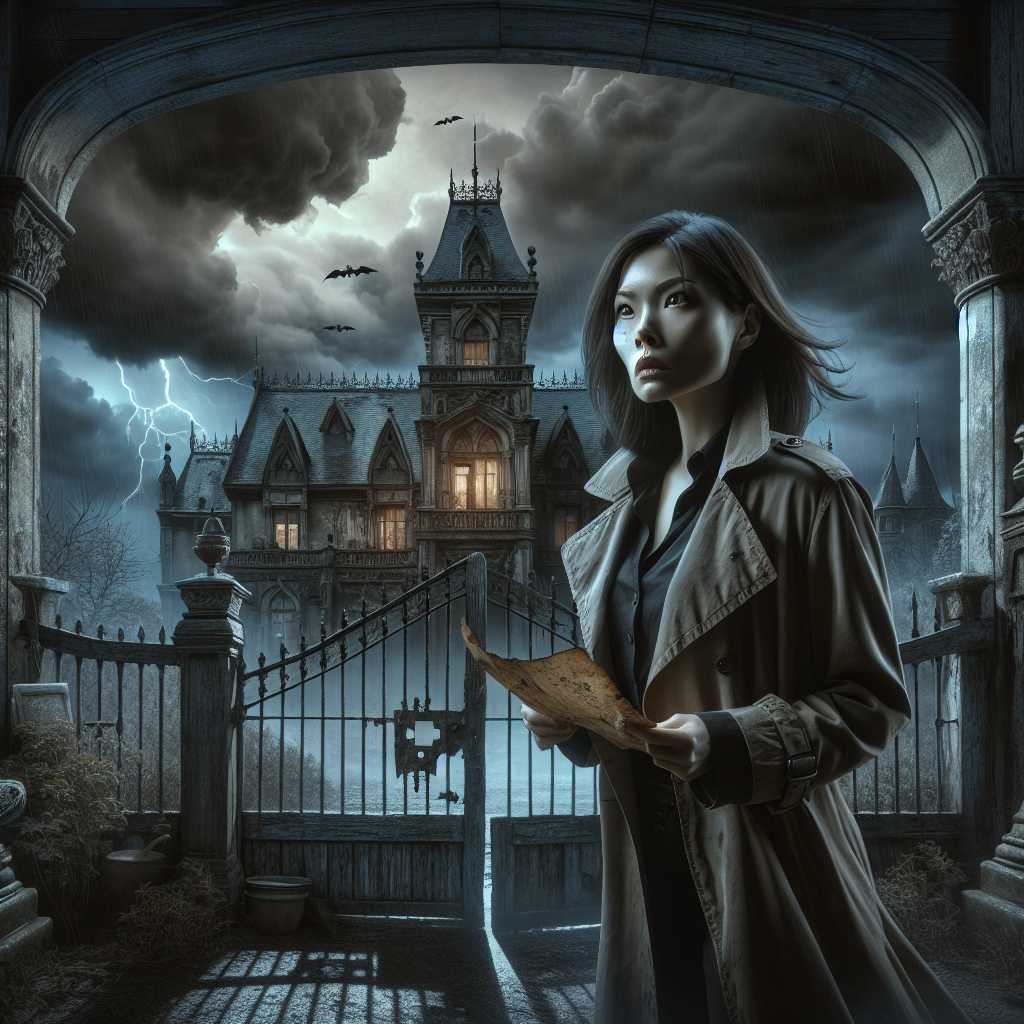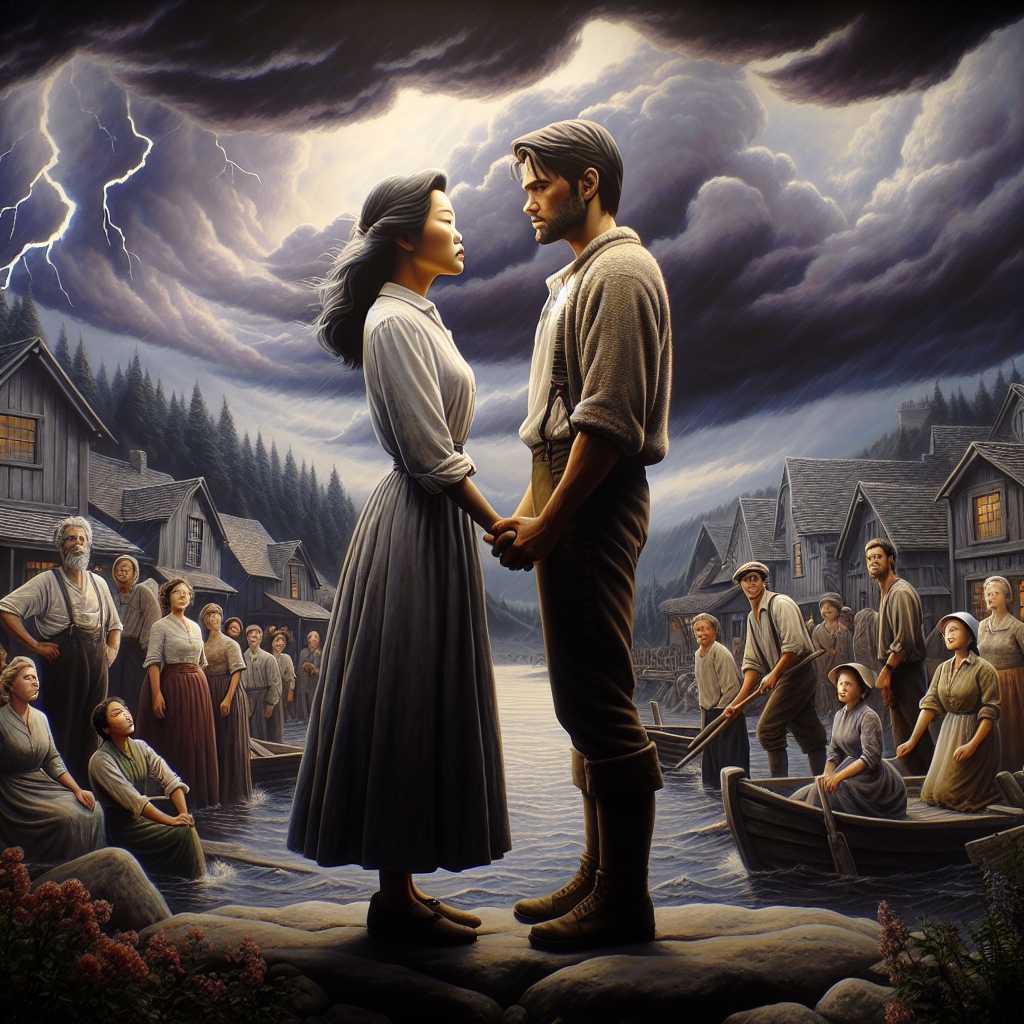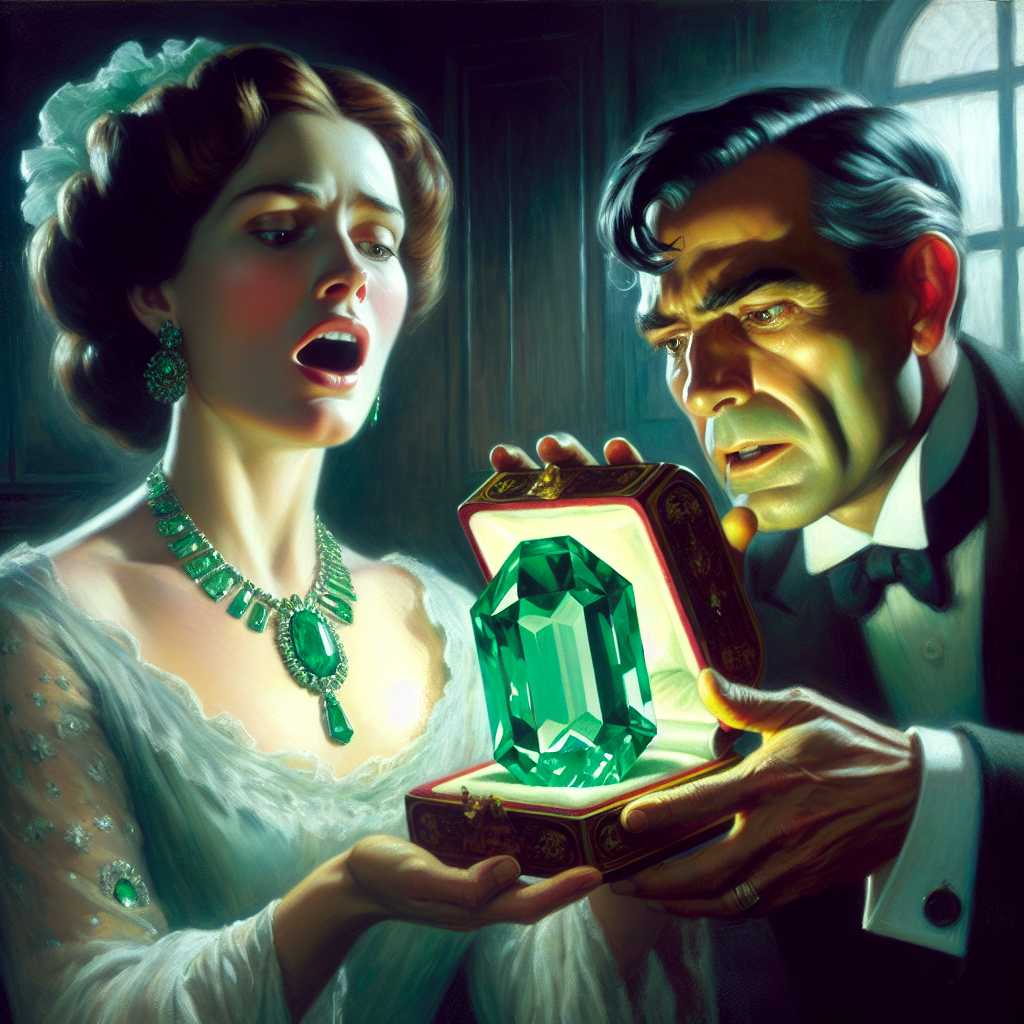
In the quiet town of Eldridge, nestled between the verdant hills and the whispering river, shadows loomed more ominously than the gathering clouds of a brewing storm. It was a town often forgotten by time, its cobblestone streets and quaint cottages relics of an era that most had left behind.
Yet, for all its quaint charm, Eldridge held secrets. Secrets that lay buried beneath the foundations of its homes and whispered from the ashes of its past. It was a town that the world overlooked, content to exist as a mere footnote on maps and tales. But every so often, its name emerged from obscurity, accompanied by stories both haunting and tragic.
It began on an autumn evening, when the moon cast its silvery light over the Pavilion of Shadows—a grand but neglected mansion perched on the outskirts of Eldridge. The pavilion, once a symbol of opulence, now stood as a solitary sentinel, its windows like hollow eyes.
The town had learned to ignore its presence, save for the occasional trespasser seeking ghostly thrills. Tales of ghostly laughter and phantom lights were common, especially on long, cold nights. But it wasn't until that particular evening that the rumors took a dark turn.
"The pavilion weeps," said old Marjorie, the town’s unofficial historian and gossip-monger. "The dead walk, seeking justice for the wrongs buried with them."
Marjorie’s words stirred both fascination and fear, leading the townsfolk to gather at the tavern, feeding on each other's anxiety and imagination. The more skeptical dismissed her tales as nothing more than drunken ramblings, but some could not shake the chill that crept up their spines. Not when a chilling scream slit the air at the stroke of midnight.
That scream marked the beginning of the end of the town's complacent peace.
The following morning, Detective Eli Crawford arrived from the city, his trench coat flaring behind him like a flag of impending justice. He was a man who spoke little but saw much, a detective with a mind sharp as broken glass.
Eli's entrance stirred an uneasy ripple among the townsfolk. Outsiders were rare in Eldridge, rarer still when they came asking questions. Nevertheless, Eli methodically began his inquiry into the scream and the pavilion, weaving through Eldridge with the grace of a waltz.
His first call was to Marjorie, who recounted her tale with the fervor of a performer on stage:
"I tell you, detective, the pavilion's cursed. A tragedy consumed that place years ago—lost love, betrayal, and vengeance. Some say you can hear weeping at night, feel the itch of forgotten eyes watching through the walls."
Eli listened, his expression thoughtful. He knew well that legends seldom held truth at face value, but there was always a kernel, a hint of reality hidden beneath layers of superstition. The trick lay in finding it.
Days blurred into nights as Eli delved deeper into the history of the pavilion. Old records identified its last owner as Jonathan Foster, a man whose name was seldom spoken since he vanished under mysterious circumstances. The town had no record of his departure—no note, no farewell, merely silence.
The key was in uncovering what happened on the night Jonathan vanished. Eli's instincts led him to the remains of an old journal once owned by Jonathan's wife, Lydia—a woman renowned for her beauty and kindness, yet whom the town had long forgotten.
Within those pages, the story unfolded—a tale of passion twisted by jealousy and rage. Lydia had written of Jonathan's increasingly erratic behavior, of voices only he could hear and actions he could not remember. Toward the end, her entries were more plea than diary, desperate scribblings of a woman lost amid despair:
"The night grows long, and shadows seek their due. I fear for my love, lost among the echoes of this house."
It was then Eli stumbled upon a final piece of the puzzle—an entry smudged with tears:
"Jonathan has gone to the pavilion. If these words find you, know that I loved him until the very end. I go now to save him...or join him."
Eli hastened to the pavilion, each step filled with anticipation. No one had dared venture to its heart for many years, the truth trapped within its crumbling walls. Yet, there it was—a golden locket, lying in the shadows, tethering the past to the present.
The detective picked it up, the weight of history heavy in his palm. He knew he had found the key—that moment when love stood at the precipice of tragedy and hope. His investigation would reveal, for certain, the shadows that swallowed Jonathan and Lydia, but Eli's heart already understood.
In Eldridge, the people learned to tread carefully once more. They honored the memories of those who had been wronged, whispering stories not as warnings but as reminders that such shadows could exist anywhere. As for the pavilion, long after Eli had closed the case and departed, it bore witness to another tale—a single piece of silver moonlight trickling through the ceiling, cradling a golden locket like an eternal promise.
And so, amidst the whispers of history and the rustle of autumn leaves, Eldridge settled back into its quietude, the pavilion standing, for now, as a testament to love, loss, and the unyielding search for justice.










